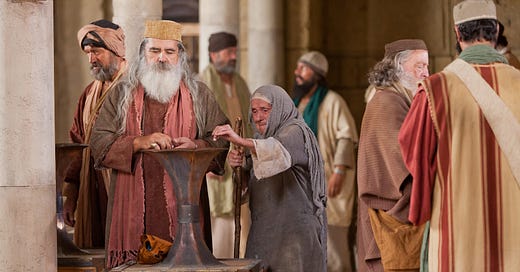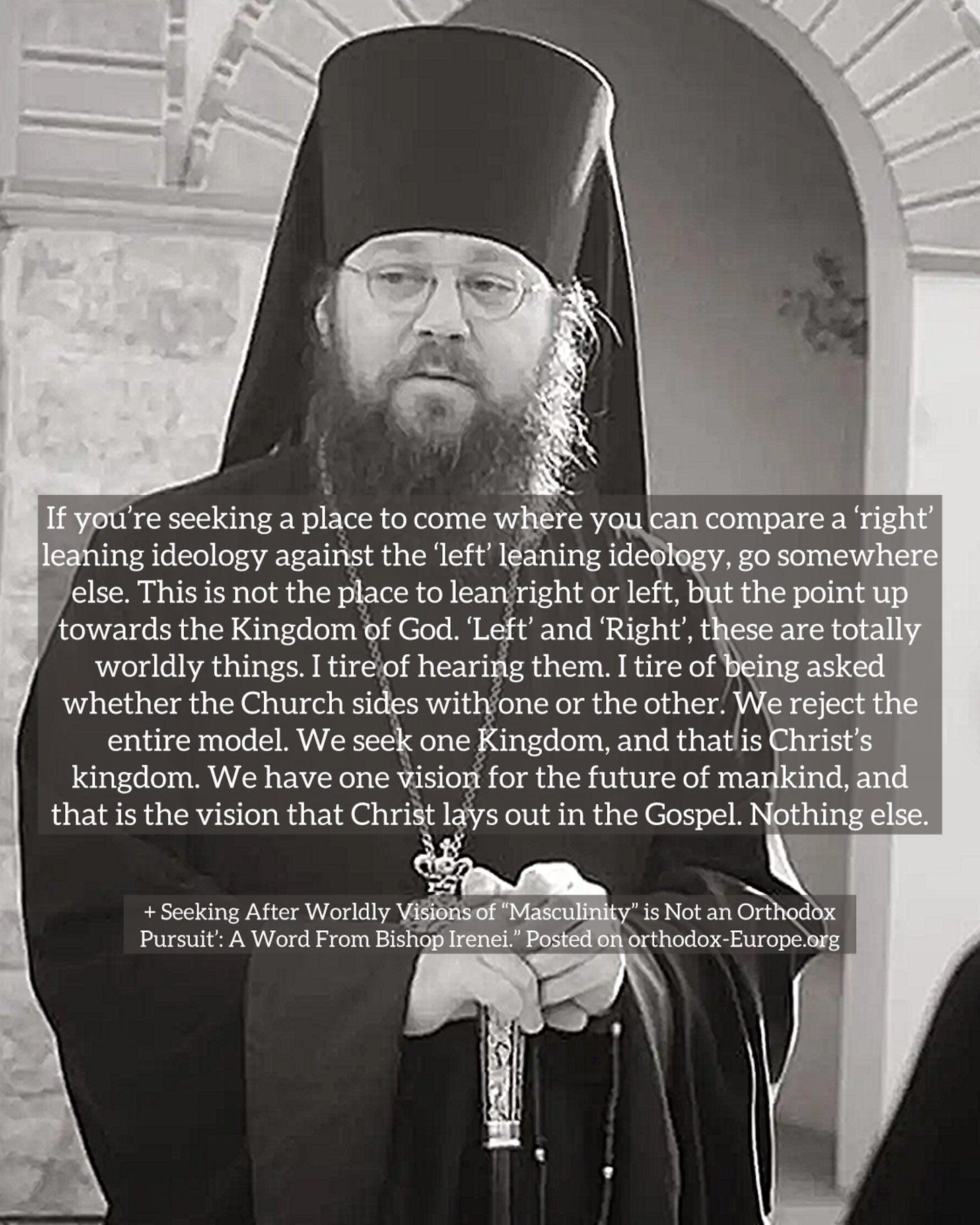Acts 20:7-12 (Epistle)
7 Now on the first day of the week, when the disciples came together to break bread, Paul, ready to depart the next day, spoke to them and continued his message until midnight.
8 There were many lamps in the upper room where they were gathered together.
9 And in a window sat a certain young man named Eutychus, who was sinking into a deep sleep. He was overcome by sleep; and as Paul continued speaking, he fell down from the third story and was taken up dead.
10 But Paul went down, fell on him, and embracing him said, “Do not trouble yourselves, for his life is in him.”
11 Now when he had come up, had broken bread and eaten, and talked a long while, even till daybreak, he departed.
12 And they brought the young man in alive, and they were not a little comforted.
John 14:10-21 (Gospel)
10 Do you not believe that I am in the Father, and the Father in Me? The words that I speak to you I do not speak on My own authority; but the Father who dwells in Me does the works.
11 Believe Me that I am in the Father and the Father in Me, or else believe Me for the sake of the works themselves.
12 Most assuredly, I say to you, he who believes in Me, the works that I do he will do also; and greater works than these he will do, because I go to My Father.
13 And whatever you ask in My name, that I will do, that the Father may be glorified in the Son.
14 If you ask anything in My name, I will do it.
15 If you love Me, keep My commandments.
16 And I will pray the Father, and He will give you another Helper, that He may abide with you forever –
17 the Spirit of truth, whom the world cannot receive, because it neither sees Him nor knows Him; but you know Him, for He dwells with you and will be in you.
18 I will not leave you orphans; I will come to you.
19 A little while longer and the world will see Me no more, but you will see Me. Because I live, you will live also.
20 At that day you will know that I am in My Father, and you in Me, and I in you.
21 He who has My commandments and keeps them, it is he who loves Me. And he who loves Me will be loved by My Father, and I will love him and manifest Myself to him.”
Apostle Hermas of the Seventy (1st c.)
Saint Hermes (Hermḗs) is mentioned by the Holy Apostle Paul in his Epistle to the Romans (16:14). According to Tradition, he was the Bishop of Dalmatia and reposed in peace. In the Synaxarion of Hippolyte Delehaye (1902) he is called Ermylos. In the Paris Codex 13 f. 296 he is listed on April 8 along with with Herodion, Asynkritos (Bishop of Hyrkania in Asia), Phlegon (Bishop of Marathon), Rufus and his mother (whom Saint Paul refers to as his mother, as well), Epaphras, and Agabos.
Martyr Hermias at Comana (2nd c.)
Holy Martyr Hermias suffered for Christ in the city of Comana during the persecution under the emperor Antoninus Pius (138-161). The governor Sebastian, who was in Cappadocia to arrest Christians, urged the saint to offer sacrifice to the pagan gods, promising him honors and mercy from the emperor.
The old soldier bravely confessed his faith in Christ. After long exhortation, the governor gave orders to torture the saint. They beat him on the face so that the skin peeled from his face, and they threw him into a red-hot oven. When the oven was opened after three days, the martyr Hermias emerged from it unharmed.
The governor Sebastian ordered the sorcerer Marus to poison Saint Hermias with a potion. The poisonous drink did the saint no harm. A second goblet with even stronger poison also failed to kill the saint. The sorcerer believed in Christ the Savior, and was immediately beheaded. Saint Marus was baptized in his own blood, and received a martyr’s crown.
Saint Hermias was subjected to even more terrible tortures. They raked his body with sharp instruments, threw him in boiling oil, and gouged out his eyes, but he gave thanks to the Lord Jesus Christ. Then they suspended the martyr head downward. For three days he hung in this position.
People sent by the governor to verify his death found him alive. Struck by the miracle, they were blinded with fright and began to call out to the saint to help them. The holy martyr ordered the blind to approach him, and healed them in the Name of Jesus Christ.
In anger the governor ordered the skin flayed from the saint’s body, but he remained alive. Then the crazed Sebastian beheaded him with his own sword. Christians secretly buried the body of the martyr Hermias, whose relics bestowed numerous healings.
14 Facts about Christ and Almsgiving from Three Holy Hierarchs
Source: The Catalogue of Good Deeds
Saint Gregory the Theologian († January 25, 390):
1. Let us become like Christ, since Christ became like us. He assumed the worse that He might give us the better; He became poor that we through His poverty might be rich.
2. Give something, however small, to the one in need. For it is not small to one who has nothing. Neither is it small to God, if we have given what we could.
3. May God preserve me from being rich while they are indigent, from enjoying robust health if I do not try to cure their diseases, from eating good food, clothing myself well and resting in my home if I do not share with them a piece of my bread and give them, in the measure of my abilities, part of my clothes and if I do not welcome them into my home.
4. … I gave as an offering my all to Him Who had won me and saved me, my property, my fame, my health, my very words… In considering all these things, I preferred Christ. And the words of God were made sweet as honeycombs to me, and I cried after knowledge and lifted up my voice for wisdom. There was moreover the moderation of anger, the curbing of the tongue, the restraint of the eyes, the discipline of the belly, and the trampling under foot of the glory which clings to the earth.
5. Christ is born: glorify Him. Christ comes from heaven: go out to meet Him. Christ descends to earth: let us be raised on high.
Saint Basil the Great († January 379):
1. When someone steals another’s clothes, we call them a thief. Should we not give the same name to one who could clothe the naked and does not? The bread in your cupboard belongs to the hungry; the coat unused in your closet belongs to the one who needs it; the shoes rotting in your closet belong to the one who has no shoes; the money which you hoard up belongs to the poor.
2. I cannot persuade myself that without love to others, and without, as far as rests with me, peaceableness toward all, I can be called a worthy servant of Jesus Christ.
3. I have learned from Jesus Christ Himself what charity is, and how we ought to practise it; for He says: “By this shall all men know that ye are My disciples, if ye love one another.” Never can I, therefore, please myself in the hope that I may obtain the name of a servant of Christ if I possess not a true and unfeigned charity within me.
4. … if, to me, to live is Christ (Phil. 1:21), truly my words ought to be about Christ, my every thought and deed ought to depend upon His commandments, and my soul to be fashioned after His.
5. A tree is known by its fruit; a man by his deeds. A good deed is never lost; he who sows courtesy reaps friendship, and he who plants kindness gathers love.
Saint John Chrysostom († September 14, 407):
1. If you wish to leave much wealth to your children, leave them in God’s care. Do not leave them riches, but virtue and skill. For if they learn to expect riches, they will not mind anything besides, and their abundant riches shall give them the means of screening the wickedness of their ways.
2. The rich man is not one who is in possession of much, but one who gives much.
3. If the Lord should give you power to raise the dead, He would give much less than He does when he bestows suffering. By miracles you would make yourself debtor to Him, while by suffering He may become debtor to you. And even if sufferings had no other reward than being able to bear something for that God who loves you, is not this a great reward and a sufficient remuneration? Whoever loves, understands what I say.
4. Do you fast? Then feed the hungry, give drink to the thirsty, visit the sick, do not forget the imprisoned, have pity on the tortured, comfort those who grieve and who weep, be merciful, humble, kind, calm, patient, sympathetic, forgiving, reverent, truthful and pious, so that God might accept your fasting and might plentifully grant you the fruits of repentance.
This week’s calendar reminders:
Monday 5/26: Matins 8:30 a.m.
Tuesday 5/27: no services or events
Wednesday 5/28: no services or events
Thursday 5/29: Matins 8:30 a.m.
Friday 5/30: Matins 8:30 a.m.
Saturday 5/31: Catechumen Class 4:30 p.m.; Great Vespers 6 p.m.
Sunday 6/1: Hours 9 a.m.; DeLeones baptism 9:15 a.m.; Divine Liturgy 9:30 a.m.
CLICK BELOW to donate online:
Christ the Savior Orthodox Church is located in Southbury, Connecticut, and is part of the New England Diocese of the Orthodox Church of America.
Mailing address: Christ the Savior Church, 1070 Roxbury Road, Southbury, CT 06488
PLEASE DONATE to help our parish do the work of the Lord, thrive and grow, and extend the Kingdom of God. May the Lord bless your generosity!
Fr. Moses Locke can be reached at frmoseslocke@gmail.com










